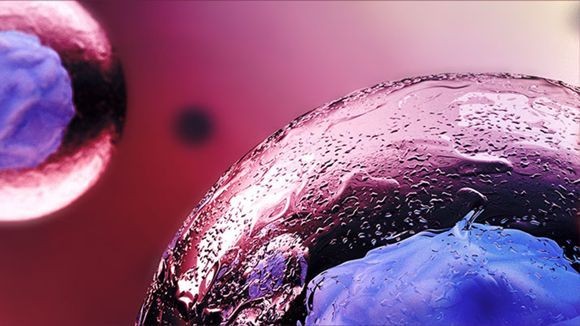Autologous stem cell boost improves persistent immune effector cell associated hematotoxicity following BCMA directed chimeric antigen receptor T (CAR T) cell therapy in multiple myeloma.
Bone Marrow Transplant. 59, 647-652 (2024). Mohan M., Szabo A., Patwari A. et al.
CAR-T associated hematotoxicity (ICAHT) occurs after BCMA CAR T-Cell therapy. This multicenter study included 61 patients with ANC of < 1000, thrombopenia < 50,000 or hemoglobin <90 g/L, receiving autologous stem cells at a median of 116 days after CAR-T. Stem cell boost significantly improved cytopenias at 3 and 6 months.
Out of specification Tisagenlecleucel is associated with outcomes comparable to standard of care product in relapsed or refractory diffuse large B-cell lymphoma.
Bone Marrow Transplant 59, 569–571 (2024). De Philippis, C., Zucchinetti, C., Mannina, D. et al.
This letter to the editor describes outcomes of patients treated by CAR-T cell therapy where product pre-treatment specifications were not met.
Manufacturing of primary CAR-NK cells in an automated system for the treatment of acute myeloid leukemia.
Bone Marrow Transplant 59, 489–495 (2024). Albinger, N., Müller, S., Kostyra, J. et al.
This paper describes how to add a CD33 specific CAR to NK cells in an automated system.
Long-term outcomes of patients with large B-cell lymphoma treated with axicabtagene ciloleucel and prophylactic corticosteroids.
Bone Marrow Transplant 59, 366–372 (2024). Oluwole OO, Forcade E, Muñoz J, et al.
In this substudy of ZUMA-1 in patients receiving axi-cel for DLBCL prophylactic steroids or early steroids/tocilizumab were given to prevent inflammatory complications. Authors report on 40 patients with no CRS > 3 and low ICANS in this cohort ni spite of efficacy of the CAR-T treatment in the expected range.
CD19 CAR T-Cell Therapy in Autoimmune Disease - A Case Series with Follow-up.
N Engl J Med. 2024 Feb 22;390(8):687-700. Müller F, Taubmann J, Bucci L, et al.
A report on 15 patients severe SLE (8), idiopathic inflammatory myositis (3), SSC (4) receiving CD19 CAR-T cells after conditioning with FluCy. After 15 months all patients had clinical response with moderate toxicity
CAR T Cells - A New Horizon for Autoimmunity?
N Engl J Med. 2024 Feb 22;390(8):758-759. Isaacs JD.
An accompanying editorial on the report cited above putting results in perspective and speculating on mechanisms of a potential superiority of cellular CD19 targeting after e.g. having failed CD20 directed antibodies.
The academic point-of-care anti-CD19 chimeric antigen receptor T-cell product varnimcabtagene autoleucel (ARI-0001 cells) shows efficacy and safety in the treatment of relapsed/refractory B-cell non-Hodgkin lymphoma.
Br J Haematol. 2024 Feb;204(2):525-533. Martínez-Cibrián N, Ortiz-Maldonado V, Español-Rego M, et al.
This is a report on academic anti-CD19 (CAR) product in the CART19-BE-01 trial in 45 patients with NHL. CRS occurred in 84% (4% grade ≥3), neurotoxicity in 7%, response rate 73% at d100, 3-year duration of response 56% was observed. The 3-year PFS and OS were 40% and 52%. High LDH was the only covariate impacting PFS. This study shows that CD19 CAR-T can be produced in academic institutions.
Therapeutic options for large B-cell lymphoma relapsing after CD19-directed CAR T-cell therapy.
Bone Marrow Transplant. 59, 162-170 (2024). El Warrak S, Kharfan-Dabaja MA, et al.
This review examines strategies for relapse / progress after CAR including CD19-directed monoclonal antibodies and antibody drug conjugates, bispecific antibodies and allogeneic hematopoietic cell transplantation, but data is limited.
Efficacy of CD19 directed therapies in patients with relapsed or refractory large b-cell lymphoma relapsing after CD19 directed chimeric antigen receptor T-cell therapy.
Bone Marrow Transplant. 59, 211-216 (2024). Iqbal M, Jagadeesh D, Chavez J, et al.
This study on 53 patients with R/R LBL after CAR-T. CD19-directed therapies, were tafasitamab plus lenalidomide or loncastuximab tesirine a conjugated CD19 antibody, approved in R/R LBCL. Overall response and complete response rates were 27% and 10%, respectively.
Base-Edited CAR7 T Cells for Relapsed T-Cell Acute Lymphoblastic Leukemia.
N Engl J Med. 2023 Jun 14. doi: 10.1056/NEJMoa2300709. Robert Chiesa, et al. for the Base-Edited CAR T Group.
T-cell specific CAR-T may lead to fratricide. A CD7 specific CAR-T cell construct, edited using CRISPR technology inactivating 3 genes, CD52, CD7 and the beta chain of the T-cell receptor to prevent a) fratricide b) toxicity of lymphodepleting anti-CD52 and c) GvHD using allogeneic donor derived of the shelf CD7 specific CAR-T cells (BE-CAR7) is presented. Three pediatric patients with T-ALL were treated. Main adverse events were CRS, pancytopenia and infections. Efficacy was observed.
CD19-targeted chimeric antigen receptor T-cell therapy in patients with concurrent B-cell Non-Hodgkin lymphoma and rheumatic autoimmune diseases: a propensity score matching study.
Bone Marrow Transplant. 2023; 58:1223–1228. J. Wang et al.
Observational study of 1363 patients with B-cell lymphoma receiving CD19 specific CAR-T. Fifty-eight (4.3%) had concurrent autoimmune disease (AID). Lymphoma response and complications were similar in patients with and without AID. Patients with AID had some serological and clinical response of the concurrent AID. CAR-T technology may be explored to treat severe AID.
Safety and feasibility of outpatient chimeric antigen receptor (CAR) T-cell therapy: experience from a tertiary care center.
Bone Marrow Transplant. 2022 Jun;57(6):1025-1027. Azra Borogovac et al.
Study describing setting up a program of outpatient CAR-T treatment using commercially available products describing initial results with 23 treated patients. Of note, 71% of patients required hospitalization for a median of 8 days. Authors describe challenges setting up such a program.

